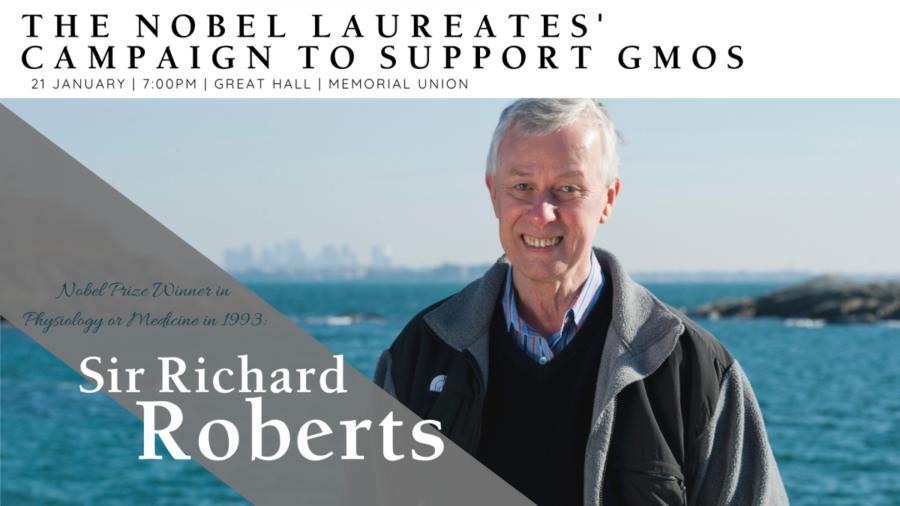Benefits of genetically modified organisms to be discussed
Sir Richard Roberts, Nobel laureate, will discuss the benefits of genetically modified organisms at Tuesday’s lecture. In 1993, Roberts was awarded the Nobel Prize in Physiology or Medicine alongside Phillip Allen Sharp, a geneticist.
January 20, 2020
Nobel laureate Sir Richard Roberts will be discussing the benefits of genetically modified organisms at 7 p.m. Tuesday.
Roberts will be speaking at the Great Hall of the Memorial Union for “The Nobel Laureates’ Campaign to Support GMOs.”
According to Iowa State’s Lecture Series, Roberts is one of 129 Nobel laureates campaigning to persuade the government and the public to support using genetically modified organisms, as they increase food production, reduce insecticide use and fight hunger in developing counties.
In 1993, Roberts was awarded the Nobel Prize in Physiology or Medicine alongside Phillip Allen Sharp, a geneticist and molecular biologist in physiology, for their role in the discoveries of split genes.
Gene splicing is the process of inserting new genes into existing gene material, according to a news release.
The Nobel Prize reports, in 1977, Roberts and Sharp independently discovered genes could be discontinuous; a given gene could be in the genetic material, DNA, as several, separated segments.
Roberts and Sharp both demonstrated how RNA can be divided into introns and exons, and then the exons can be joined together, according to The Nobel Prize. This division process can happen in different ways, which give the gene the potential to form a number of various proteins.
Roberts conducted postdoctoral research at Harvard University before he worked at Cold Spring Harbor Laboratory in Long Island, New York, and New England Biolabs in Massachusetts.
While at the University of Sheffield in the United Kingdom, Roberts obtained a bachelor’s degree in chemistry and his doctorate in chemistry.
Born in Derby, England, to a father who was a motor mechanic and a homemaker mother, Roberts grew up in the United Kingdom where he attended St. Stephen’s junior school. Robert’s biography on The Nobel Prize’s website states Roberts met his first mentor at St. Stephen’s junior school.
His mentor, Mr. Broakes, encouraged Roberts’ interest in mathematics by creating problems for him to solve. Roberts moved on to attend the City of Bath Boys, now Beechen Cliff School, after St. Stephen’s junior school.
Family and friends of Roberts have been a way for him to also enjoy the parts of life not related to science.
“Throughout my life in science, I have been fortunate to have friends and family who will bring me back to earth and remind me that there is much in life to be savored besides science,” Roberts said in his The Nobel Prize biography.
“The Nobel Laureates’ Campaign to Support GMOs” lecture is free and open to the public for anyone to attend.

















